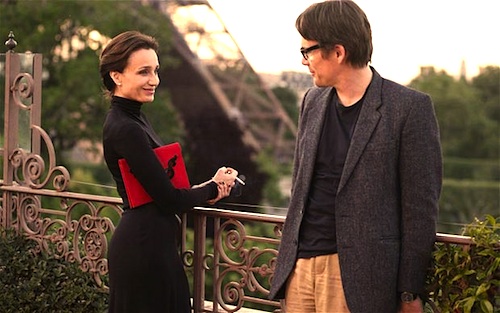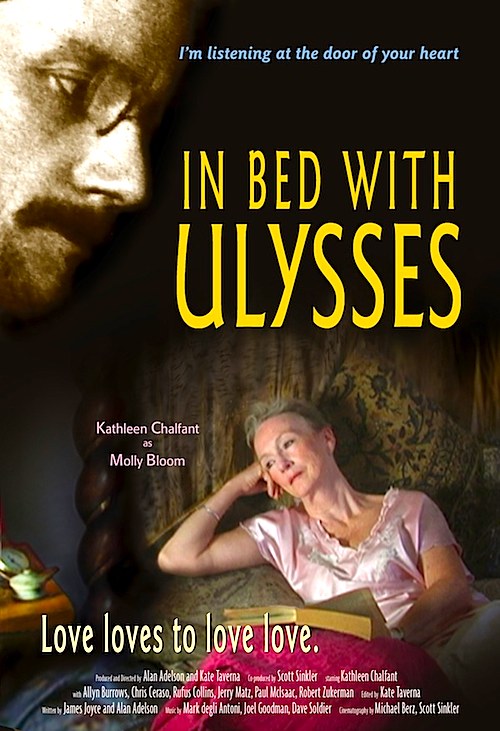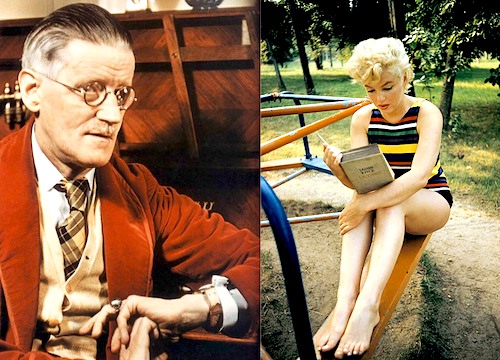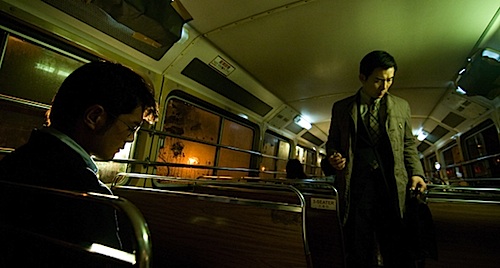By Joe Bendel. Tom Ricks is a writer, so he must be a little off. With only one obscure novel to his name, the American cuts an underwhelming literary figure, but he has enough issues to earn a restraining order from his French wife. Following her and their daughter to Paris does little for his overwrought state of mind in Pawel Pawlikowski’s The Woman in the Fifth, which opens this Friday in New York.
Less than thrilled to see him, Nathalie Ricks promptly calls in the gendarmerie. Beating a hasty retreat, Ricks finds himself penniless at the flop-house motel run by gangster Sezer. To pay for his room and board, the novelist accepts a job working as a sketchy subterranean watchman for one of Sezer’s criminal endeavors. He figures it will give him time to work, but his writing is definitely not of the healthy variety. The only bright spot are his semi-regular assignations with Margit Kadar, an elegant and alluring widow of a Hungarian novelist perhaps even more obscure than Ricks, living in Paris’s 5th arrondissement.
While his ex shuns his reconciliation attempts, Ricks attracts the romantic attention of Ania, the Polish immigrant waitress at Sezer’s tavern, who also happens to be the mobster’s lover. This profoundly destabilizes the novelist’s situation. It also starts a chain of events leading Ricks to suspect a hitherto unknown force is meddling in his affairs.

Based on the novel by Douglas Kennedy, Fifth blends elements of genre cinema in ways that would be spoilery to discuss in detail. However, Pawlikowski is more interested in presenting an extreme psychological study with a distinctly Continental art film sensibility than aiming for mere thrills or chills. Never rushing the revelations, Pawlikowski still deftly creates sense that all is not right with his protagonist and his world.
Leading a multinational ensemble, Ethan Hawke and his terrible French accent are effectively moody and withdrawn as the socially problematic Ricks. Polish actress Joanna Kulig, recently seen (and very much exposed) in Malgoska Szumowska’s Elles, is also quite credible as the glammed-down Ania. Yet, Kristin Scott Thomas is the crucial piece of the film’s puzzle. Always an intelligent presence, she is absolutely perfectly cast as the sophisticated Kadar. The audience instantly shares Ricks’ interest in her—and of course her accent is always flawless, in both French and English.
Fifth’s slow build and emotionally detached approach to Ricks’ existential drama might be difficult for some viewers to whole-heartedly embrace. However, it is a smart, stylish film. Indeed, cinematographer Ryszard Lenczewski’s chilly gray color palette nicely suits the on-screen mystery and alienation. It is the sort of film viewers will kick around in their heads for days after screening it, which is an increasing rarity. Highly recommended for fans of European cinema with a dark twist, Woman in the Fifth opens this Friday (6/15) in New York at the Village East.
LFM GRADE: B+
Posted on June 13th, 2012 at 10:39am.



